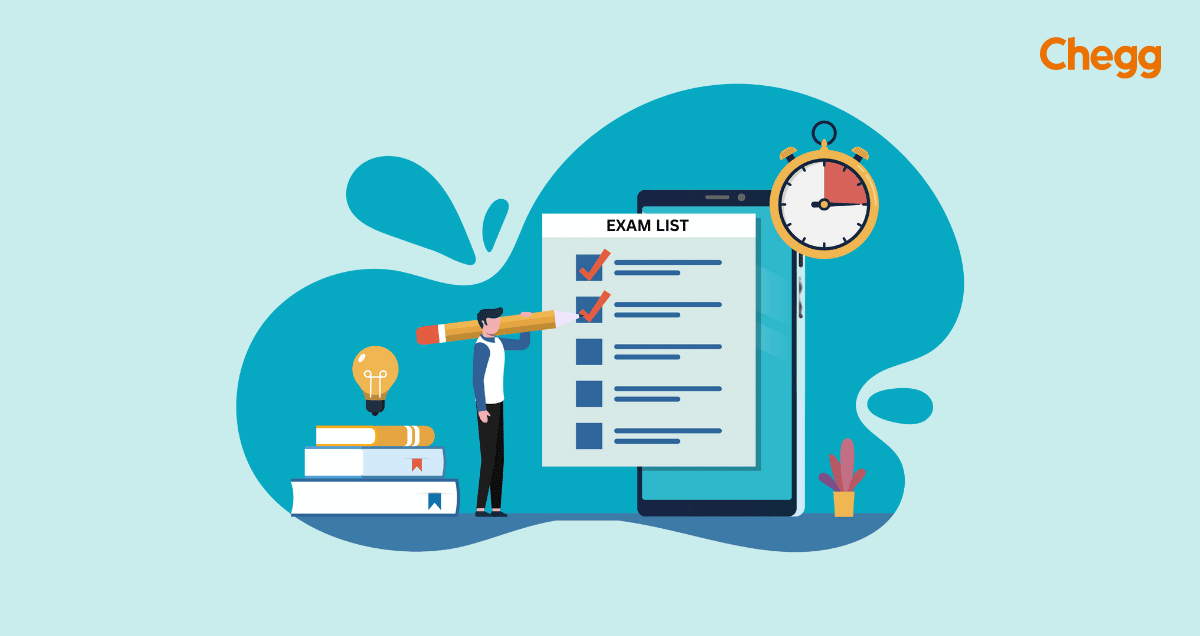

Quick Summary
Have you recently graduated and are wondering what’s next? Or are you pursuing your graduation while also preparing for competitive entrance exams? Whether your goal is a prestigious government job or admission to a premier institute, India offers a vast landscape of competitive exams after graduation that can decisively shape your career.
Every year, millions of students appear for these crucial entrance exams after graduation, such as UPSC Civil Services, SSC CGL, IBPS PO, and defense exams like CDS and AFCAT. These government exams after graduation not only offer financial stability but also open doors to leadership roles and public service opportunities. However,

For instance, consider Anjali Sharma, a B.Com graduate from Delhi University. Unsure about her career after graduation, she explored different competitive exams before deciding to prepare for SSC CGL. Within two years of focused preparation, she secured a government post in the Income Tax Department. Her journey highlights how identifying the right exam early and aligning it with one’s strengths can lead to a rewarding career.
This guide brings you a detailed overview of the 15 top competitive exams after graduation in 2024, along with eligibility criteria, exam dates, and preparation tips, helping you make informed decisions about your future.
Here is a curated list of competitive exams after graduation to help you start your research:
A detailed comparison of competitive exams after graduation, focusing on eligibility and difficulty levels to help you make an informed decision.
| Exam Name | Eligibility | Tentative Dates 2025 | Difficulty Level |
|---|---|---|---|
| Civil Services Examination (CSE) | Graduate, 21-32 years | May (Prelims), September (Mains) | Very High |
| Combined Defence Services Examination (CDSE) | Graduate, 19-24 years | April and September | High |
| SSC Combined Graduate Level (CGL) | Graduate, 18-32 years | Throughout the year | Moderate to High |
| Railways Recruitment Board (RRB) NTPC | 12th/Graduate, 18-33 years | April | Moderate |
| IBPS PO | Graduate, 20-30 years | October (Prelims) | High |
| SBI PO | Graduate, 21-30 years | November-December (Prelims) | High |
| LIC AAO | Graduate, 21-30 years | February and March | Moderate to High |
| Central Teacher Eligibility Test (CTET) | 12th/Graduate with teaching diploma | July and December | Moderate |
| State Teacher Eligibility Tests (STET) | Varies by state | Varies by state | Moderate |
| Common Admission Test (CAT) | Graduate with 50% marks | November-December | Very High |
| Xavier Aptitude Test (XAT) | Graduate | Early January | High |
| Management Aptitude Test (MAT) | Graduate | Feb, May, Sep, Dec | Moderate to High |
| Graduate Aptitude Test in Engineering (GATE) | B.E./B.Tech | February | High |
| Engineering Services Examination (ESE) | B.E./B.Tech, 21-30 years | June (Prelims), November (Mains) | Very High |
| Common Law Admission Test (CLAT) | 12th (UG), LLB (PG) | May | High |
| Law School Admission Test-India (LSAT) | 12th (UG), LLB (PG) | Multiple sessions | High |
| All India Law Entrance Test (AILET) | 12th (UG), LLB (PG) | May | High |
| National Eligibility cum Entrance Test (NEET) PG | MBBS | January | Very High |
| All India Institute of Medical Sciences (AIIMS) PG | MBBS | November | Very High |
Now let’s see these competitive exams that may be available after graduation in detail.
Read More:

For graduates passionate about education, a teaching career secured through competitive exams is a highly rewarding path. Here are the key entrance exams after graduation in this field, a crucial category for anyone evaluating all exam after graduation options.
A premier exam after graduation for aspiring teachers seeking central government positions.
This exam after graduation is conducted by various states for teaching jobs in state government schools, making it a vital part of all government exams after graduation.
For a career in business management, these competitive exams are the essential gateway for admission to top-tier institutes.
The most well-known entrance exams after graduation for management aspirants.
Another major exam after graduation for management, accepted by XLRI and other top B-schools.
A versatile entrance exams after graduation that offers multiple testing dates throughout the year.
Engineering graduates have a distinct set of competitive exams for higher studies and prestigious government jobs.
This critical exam after graduation serves a dual purpose: admission to M.Tech programs and recruitment in Public Sector Undertakings (PSUs).
Among the most challenging all government exams after graduation for engineers, leading to prestigious technical roles.
This segment of entrance exams after graduation is for graduates looking to specialize in law or medicine.
Remember: The dates mentioned are tentative. Always check the official websites for the most accurate information on exam dates, eligibility, and the application process for these competitive exams. Good luck with your preparation
The preparation steps for all exam after graduation share a common thread:
Competitive exams after graduation unlock a wide range of career opportunities, be it government jobs, defense services, or higher education. Each entrance exams after students, they are provided a unique pathway, but success depends on choosing the right exam, preparing with focus, and staying consistent. With the right strategy, these exams can serve as a powerful stepping stone to a rewarding future.
Pro Tip: While preparing, consider opportunities that allow you to earn, learn, and grow simultaneously. For example, Chegg Expert Hiring offers graduates and subject matter experts in science, engineering, and math, as well as a chance to work flexibly, answer student queries, and earn per solution. Many top experts even make up to ₹1 lakh a month. This not only helps refresh your knowledge but also provides global academic exposure and professional networking opportunities.
Take charge of your future- whether through competitive exams or platforms like Chegg, your journey to success starts with the right decision today.
Read more:
Top 10 Entrance Exams after Graduation in India
Latest List of 10 Best Govt Jobs After Graduation in India – 2025

The UPSC Civil Services Exam is considered one of the best competitive exams after graduation for a career in the Indian Administrative Services (IAS), Indian Police Services (IPS), and other civil services.
Numerous government career opportunities are available, but you must pass an entrance exam to be eligible. The Indian Civil Service is regarded as the most prestigious of all government exams after graduation. However, you must pass the UPSC exams, which include prelims, mains, and a personal interview. After passing all stages, you would be able to fill some of the top posts in the Indian government.
The UPSC Govt Jobs Exams are to recruit applicants for senior jobs in the central government. The test covers various services, such as IAS, IPS, and IFS. The UPSC curriculum is quite broad, covering a wide range of disciplines. Making it one of the most difficult competitive exams after graduation in India. Also, two rounds of written tests and the PI make UPSC tougher.
The SSC Multitasking Staff (MTS) Exam is generally considered one of the easier competitive exams after graduation.
The IBPS Clerk exam is considered one of the easier government exams to crack after graduation, focusing on basic reasoning, aptitude, and English skills.
The UPSC Civil Services Exam has a flexible age limit, with maximum age limits ranging from 32 to 37 years depending on the category, but some exams like the CAT (for MBA) don’t have an upper age limit at all.
To prepare for multiple exams:
1. Identify overlapping topics in syllabi
2. Create a structured study plan
3. Focus on common subjects first
4. Use mock tests to assess progress
5. Manage time effectively between different exam preparations
Consider taking the CAT (Common Admission Test) for MBA programmes, or the GRE (Graduate Record Examination) for postgraduate studies, depending on your career goals.

Authored by, Mansi Rawat
Career Guidance Expert
Mansi crafts content that makes learning engaging and accessible. For her, writing is more than just a profession—it’s a way to transform complex ideas into meaningful, relatable stories. She has written extensively on topics such as education, online teaching tools, and productivity. Whether she’s reading, observing, or striking up a conversation while waiting in line, she’s constantly discovering new narratives hidden in everyday moments.
Editor's Recommendations
Chegg India does not ask for money to offer any opportunity with the company. We request you to be vigilant before sharing your personal and financial information with any third party. Beware of fraudulent activities claiming affiliation with our company and promising monetary rewards or benefits. Chegg India shall not be responsible for any losses resulting from such activities.
Chegg India does not ask for money to offer any opportunity with the company. We request you to be vigilant before sharing your personal and financial information with any third party. Beware of fraudulent activities claiming affiliation with our company and promising monetary rewards or benefits. Chegg India shall not be responsible for any losses resulting from such activities.